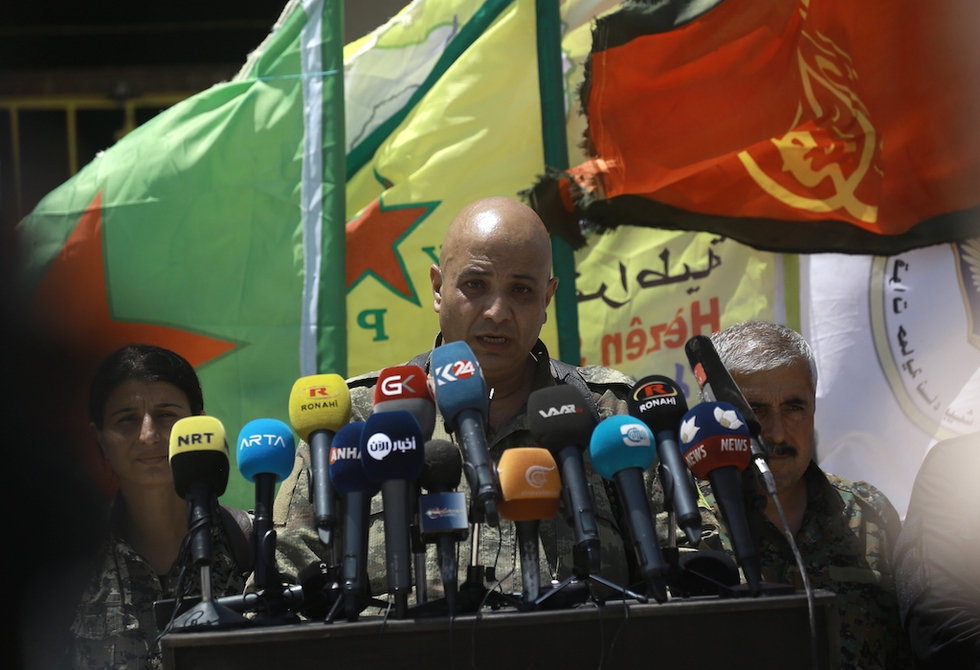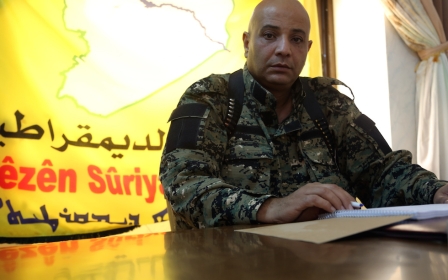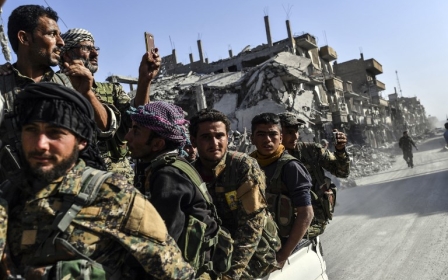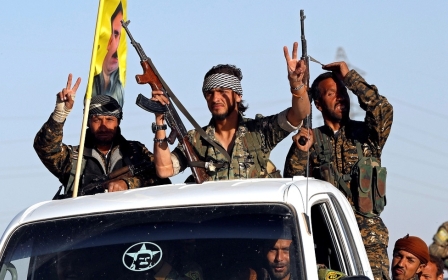SDF spokesman kidnapped by Turkish intelligence, says group

Turkey has warned that Kurds are seeking to "take over" Syria as the pro-Kurdish Syrian Democratic Forces (SDF) accused Turkish intelligence of kidnapping their spokesman.
On Wednesday, local Syrian media reported that SDF spokesman Talal Silo had fled the SDF-controlled city of Manbij and defected to Turkish-backed Free Syrian Army (FSA) forces.
“Silo was secretly coordinating with commanders from the FSA and when he entered areas under their control he then crossed into Turkish territory,” said Ibrahim al-Idlibi, an FSA spokesman, according to Reuters.
However, on Thursday the SDF broke their silence and accused the Turkish MIT intelligence service of having "kidnapped" Silo, who they said had resigned from his position after threats from Turkey.
"Silo is a respectful man and fullfilled his job professionally till the last moment," said the statement.
"Because of this reason he was threatened by Turkey on his family. We believe that Silo and his family were kidnapped in a special joint operation by Turkey's MIT and rebels backed by it."
Turkey's Hurriyet newspaper said on Thursday that Silo had already given information to Turkish intelligence about the structure of the YPG and its political wing, the Democratic Union Party (PYD).
No official reason has been given for Silo's alleged defection, but one Syrian opposition spokesperson told al-Araby al-Jadeed that Silo had joined their ranks because he was upset at the domination of the SDF by Kurdish forces and the marginalisation of Arabs and Turkmen.
Although the SDF is backed by their NATO allies, the domination of the coalition by the pro-Kurdish People's Protection Units (YPG) has alarmed Turkey which sees the group as a spin-off of the Kurdistan Workers Party (PKK), with whom it has fought a decades-long guerilla war.
The YPG has long championed a project of decentralised government as their end goal in Syria and the group established what it called the Democratic Federation of Northern Syria last year, as an attempt to formalise that.
This has led to howls of fury from Turkey, which intervened in Syria last year in an attempt to marginalise the YPG as well as tackling the Islamic State group.
On Thursday, Turkish Foreign Secretary Mevlut Cavusoglu claimed that the ultimate goal of the YPG in Syria was conquest, not fighting IS.
“As we have seen in Raqqa, the [Syrian Kurdish People’s Protection Units] YPG is not really trying to fight with Daesh," he said, using an alternative name for the group.
"Instead it is trying to capture it and build a canton of terrorism. It has engaged in cooperation with Daesh in this region."
Turkey has repeatedly clashed with SDF forces in northern Syria although there has yet to be a full-blown conflict.
However, Turkish President Recep Tayyip Erdogan has vowed he will not allow a "terror corridor" controlled by the YPG in Syria close to Turkey's border and said they could yet mount a military operation against the YPG to oust the group from the northern Syrian town of Afrin.
Although some have viewed the SDF-controlled areas of northern Syria - often known as Rojava - as a stable and secular enclave in the region, others have warned that the group may struggle to maintain control in the long term, particularly if US support is withdrawn.
Speaking to the Dogruhaber news site, Turkish analyst Mustafa Karakas speculated that Silo's defection could be a result of this dawning reality.
“As the Syrian opposition’s strength is almost used up, the [Assad] regime will fight the PYD in the name of securing its territorial integrity,” he said
“And there’s no chance of the PYD winning that kind of war.”
New MEE newsletter: Jerusalem Dispatch
Sign up to get the latest insights and analysis on Israel-Palestine, alongside Turkey Unpacked and other MEE newsletters
Middle East Eye delivers independent and unrivalled coverage and analysis of the Middle East, North Africa and beyond. To learn more about republishing this content and the associated fees, please fill out this form. More about MEE can be found here.




